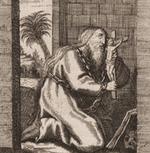Most Popular News Within Last 30 Days
Cardinal Ruini speaks bluntly in 95th birthday interview [News Analysis]
As a rule Catholic bishops—and especially cardinals—choose their words very carefully. Reading an interview with a prelate, therefore, is often an exercise in discernment, in...Pope Leo issues his 1st Lenten message, ‘Listening and Fasting’
Pope Leo XIV has issued his first Lenten message, entitled “Listening and Fasting: Lent as a Time of Conversion.” “Lent is a time in which the Church, guided by a sense of...SSPX rejects Vatican offer, will proceed with episcopal ordinations
The Society of St. Pius X (SSPX) has announced that it plans to go ahead with the ordination of new bishops on July 1, despite a Vatican warning that the move will lead to schism. In a statement...SSPX to ordain new bishops
The superior general of the Society of Saint Pius X announced today that the Society’s bishops will consecrate new bishops on July 1. Last August, Father Davide Pagliarani, the...Pope Leo outlines his vision of the priests that the Church needs today
In a letter to the priests of the Archdiocese of Madrid. Pope Leo XIV outlined his vision of the “type of priests that Madrid—and the entire Church—needs at this...San Diego Chaldean bishop accused of embezzlement, brothel visits, amid Vatican investigation
The Vatican has conducted an investigation into allegations of misconduct against a Chaldean Catholic bishop, and the prelate has submitted his resignation, The Pillar reported.Born in 1956 and ordained a priest in 1984, Bishop Emmanuel Shaleta was named the Chaldean Catholic bishop of Toronto in 2015 and the bishop of the Eparchy of Saint Peter the Apostle of San Diego in 2017.
Vatican offers ‘dialogue’ with SSPX, warns against ordinations [News Analysis]
At a February 12 meeting with Father Davide Pagliarani, the superior general of the Society of St. Pius X (SSPX), Cardinal Victor Fernandez proposed a “theological dialogue” with the...Pope confirms 30 members of Dicastery for Bishops
Pope Leo XIV confirmed 30 members of the Dicastery for Bishops on February 14 and appointed a 31st: Sister Simona Brambilla, M.C., the prefect of the Dicastery for the Institutes of Consecrated Life...American bombing of Castel Gandolfo recalled
Laudato Si’ Village, dedicated last September at Castel Gandolfo, recalled the anniversary of the American bombing of the Holy See’s property in 1944, during World War II.The hundreds of refugees who were killed “were people looking only for a safe place,” said Father Manuel Dorantes, administrative director of the Laudato Si’ Higher Education Center. “They were seeking protection.”
Pope Venerable Pius XII, who reigned from 1939 to 1958, “opened doors,” Father Dorantes added. “He made space available. He saved lives.”



